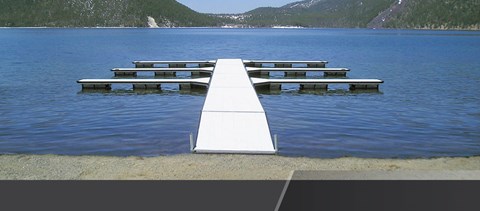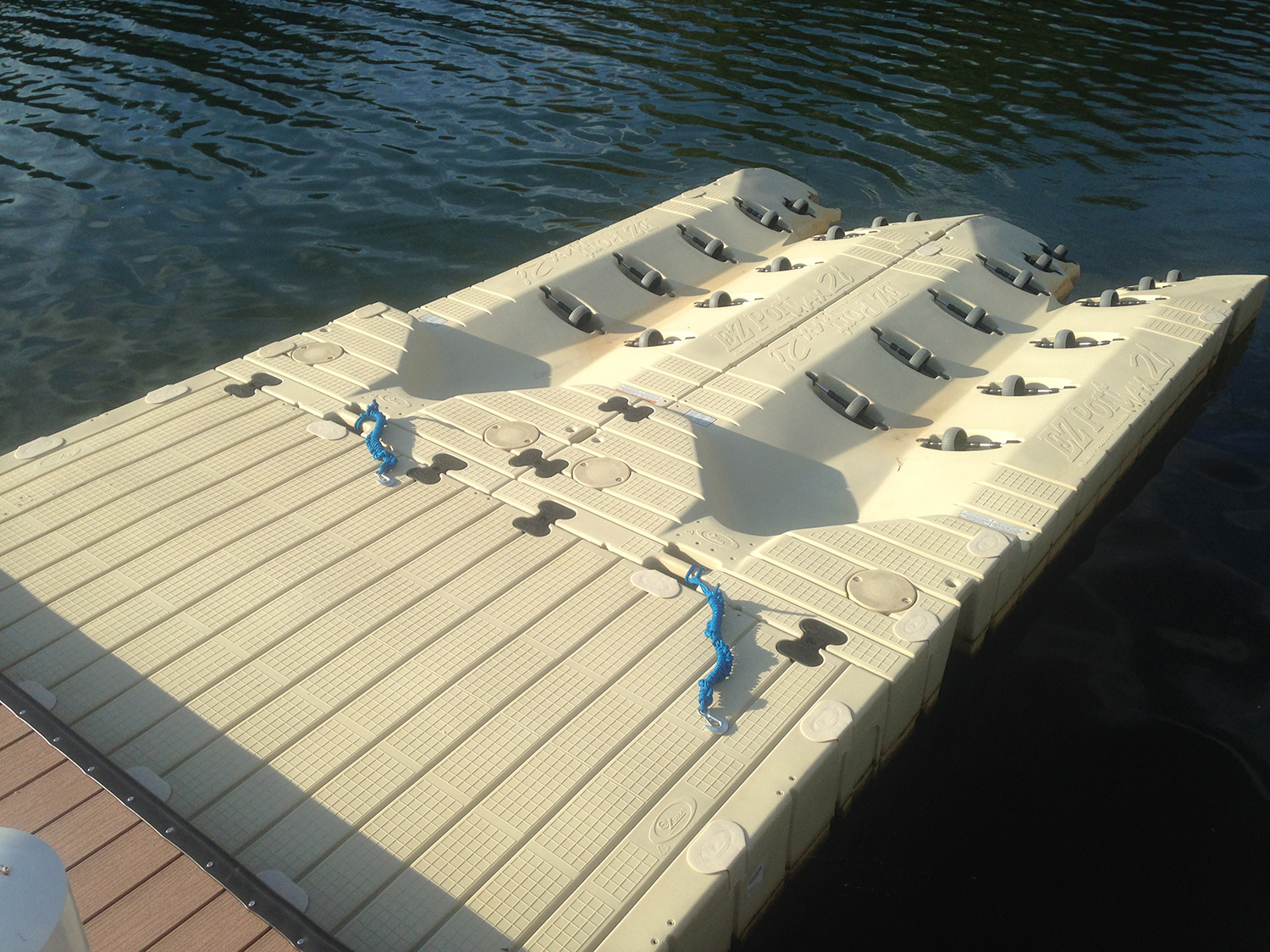Why Floating Docks Are the Perfect Option for Your Waterside Requirements
Floating docks present a compelling service for waterfront demands, specifically because of their versatility to varying water degrees and their robust, modular design. These frameworks not only enhance capability for both leisure and commercial functions yet also offer personalization options customized to particular requirements. Their environmentally pleasant materials add to sustainability efforts. As we check out the diverse advantages and applications of floating docks, it ends up being evident why they attract attention in the realm of beachfront facilities-- particularly when thinking about the long-lasting benefits they give for various stakeholders.
Trick Advantages of Floating Docks
The flexibility of floating docks deals numerous advantages for beachfront applications, making them a progressively prominent option among marina drivers and residential or commercial property programmers. Among the primary advantages is their flexibility to changing water levels, which allows them to continue to be practical in various atmospheres, including lakes, rivers, and coastal areas. Unlike traditional fixed docks, floating docks can rise and fall with the trends and seasonal adjustments, making sure regular ease of access.
Additionally, floating docks are normally simpler and cheaper to install and preserve. Their modular style facilitates quick assembly, decreasing labor prices and building time. Furthermore, the products used in floating dock building and construction are typically immune to rust, making certain durability with marginal maintenance.
Safety is an additional crucial benefit; the resilient nature of these docks reduces the danger of crashes throughout boarding and disembarking, making them especially appealing for family-oriented centers. Lastly, their environmental impact is lower than that of set frameworks, as they do not interfere with marine environments. Collectively, these advantages setting floating docks as a superior solution for a series of waterfront requirements, lining up with both operational effectiveness and environmental considerations.
Ideal Applications for Various Activities
Adaptability is a trademark of floating docks, making them suitable for a large array of activities across various waterfront setups. These functional structures can act as suitable systems for leisure tasks such as boating, fishing, and swimming. Their buoyant nature enables very easy access to watercraft, making it possible for smooth departure and disembarkation, while likewise offering a stable area for fishermens to cast their lines.
In industrial settings, floating docks help with the loading and unloading of goods, suiting both little and big vessels. They are especially beneficial in locations with rising and falling water levels, making certain that procedures remain continuous. Furthermore, floating docks can be made use of for waterside dining and entertainment, supplying a picturesque and distinct experience for patrons.
Ecological applications are also significant; floating docks can operate as observation platforms for wild animals viewing or as docking terminals for research study vessels participated in environmental studies. As marina growths come to be more common, these docks offer a functional remedy for raising capacity without considerable land alterations. Eventually, the convenience of floating docks makes them a favored selection for anyone seeking reliable and practical waterside options.
Layout and Customization Options
Floating docks not only deal with diverse tasks but also provide a variety of layout Click Here and modification alternatives that boost their functionality and visual appeal. These versatile structures can be tailored to fit particular waterside requirements, whether for residential, commercial, or leisure functions.
One key element of personalization is the option of materials. Choices range from high-density polyethylene to aluminum, each offering distinct benefits in terms of toughness and maintenance. Furthermore, the setup of the dock can be adapted to suit various water levels and environmental problems, making certain security and security.
Layout features can consist of incorporated seating, railings, and lighting, which not just improve functionality however also improve the appearance of the dock. Custom shades and surfaces allow proprietors to match the dock with existing frameworks or personal preferences, creating a natural seek the waterfront.
Moreover, floating docks can be designed with modular areas, making it possible for simple development or reconfiguration as requirements change. This flexibility is specifically important for expanding households or developing companies. In general, the comprehensive design and personalization options available make floating docks a very versatile solution for any beachfront setup.
Installment and Upkeep Considerations
Generally, effective installment and maintenance of floating docks call for careful preparation and attention to detail. Prior to beginning setup, it is important to evaluate the particular site conditions, consisting of water depth, wave action, and neighborhood regulations. This first examination informs the choice of products and layout, making sure the dock will endure ecological stress and anxieties.

Maintenance is just as important to prolong the life expectancy of the dock. Regular assessments ought to be performed to determine damage, particularly on flotation protection devices, ports, and decking. Cleaning up the dock regularly helps stop the buildup of algae and debris, which can endanger surface stability and visual appeals.
In addition, seasonal preparations, such as eliminating devices and securing the dock during severe climate, can avoid damages. By prioritizing correct installation and routine upkeep, proprietors can ensure their floating dock stays a reliable and practical waterside option for years to come.

Environmental Influence and Sustainability
The environmental impact of floating docks is an essential consideration for beachfront jobs, as these frameworks engage directly with water communities. floating dock builder. Unlike standard fixed docks, floating docks reduce disruption to the substrate, permitting all-natural debris motion and minimizing erosion. Their layout permits water circulation beneath, promoting healthy and balanced aquatic atmospheres and sustaining local wildlife
Numerous floating docks are constructed from lasting products, such as recycled plastics and environmentally friendly compounds, which lower the carbon impact view publisher site connected with manufacturing. Modern-day layouts include attributes that enhance environmental sustainability, such as permeable surfaces that help with water filtering and lessen contamination.
Floating docks additionally provide an excellent system for environment reconstruction by sustaining the development of marine vegetation and offering shelter for fish and other aquatic microorganisms. By consisting of attributes like fish habitats and submerged plantings, floating docks can enhance biodiversity in the area.
In addition, these frameworks can be made to suit photovoltaic panels, giving eco-friendly power choices that better minimize their ecological effect (dock company). Overall, floating docks represent a sustainable service that balances human use of waterfronts with the preservation of crucial ecosystems
Verdict
In conclusion, floating docks existing a sustainable and highly adaptable solution for diverse beachfront needs. Eventually, the personalized features and capacity for growth more strengthen floating docks as an ideal selection for any waterside job.
Floating docks present an engaging option for beachfront needs, specifically due to their versatility to rising and fall water levels and their robust, modular design. Unlike standard set docks, floating docks can drop and climb with the trends and seasonal adjustments, guaranteeing constant availability.
Jointly, these benefits setting floating docks as an exceptional service for a variety of waterside needs, aligning with both operational efficiency and environmental factors to consider.
In general, the comprehensive layout and modification options offered make floating docks a very adaptable option for any kind of waterfront setup.
Unlike conventional set docks, floating docks minimize interruption to the substrate, allowing for natural sediment motion and lowering erosion.